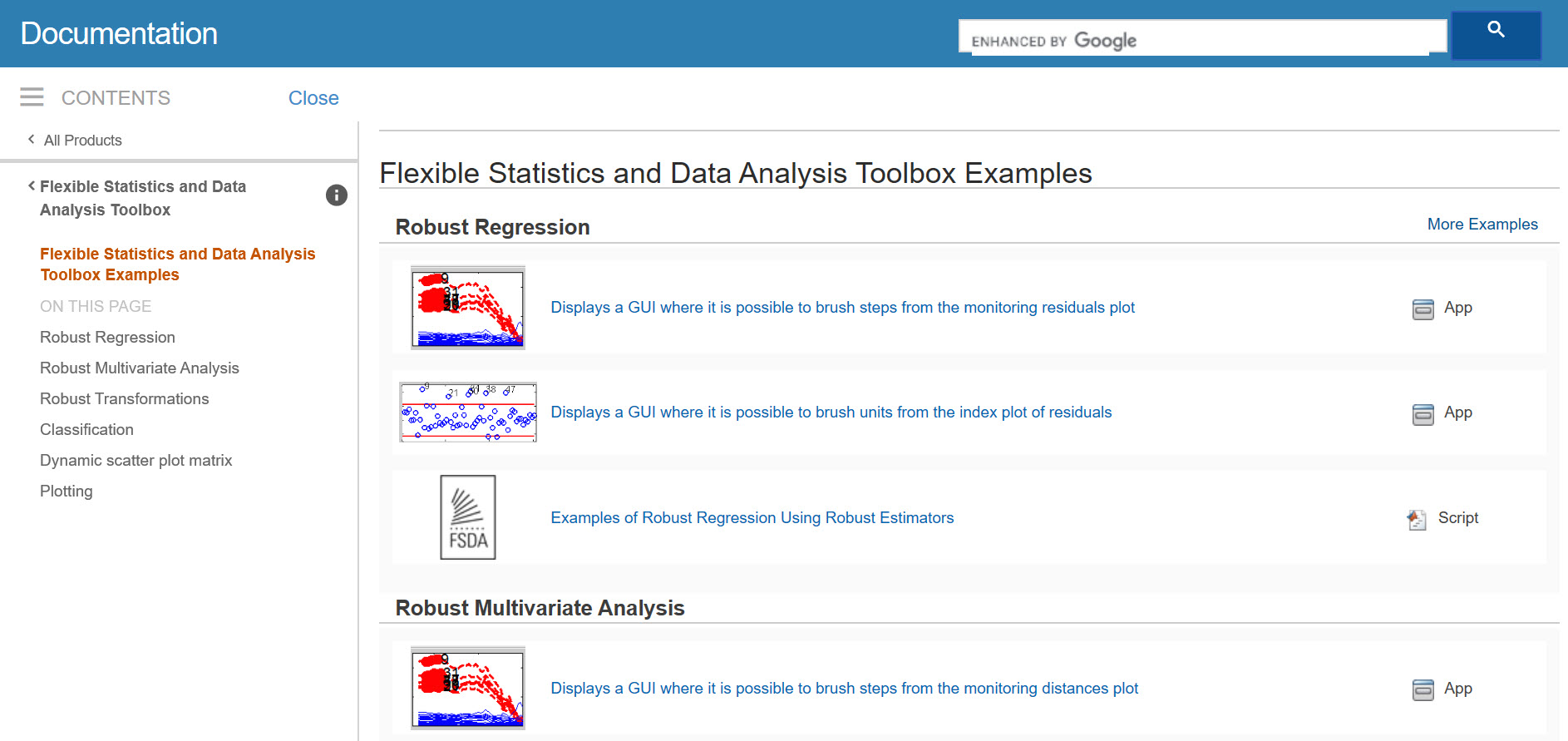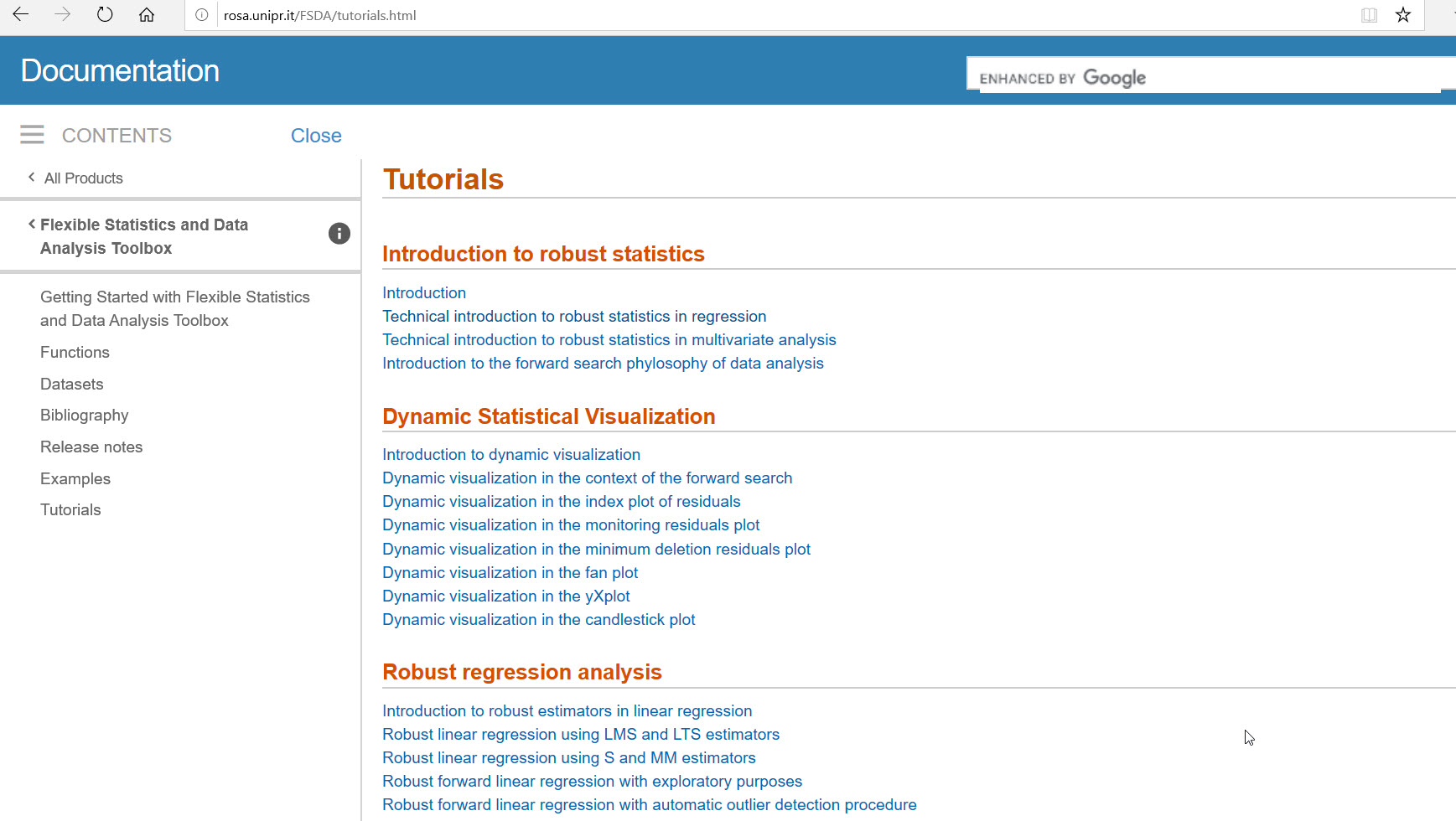Flexible Robust Statistics Data Analysis
This project hosts the source code to the original MATLAB FileExchange project and is place of active development.
FSDA Toolbox™ provides statisticians, engineers, scientists, researchers, financial analysts with a comprehensive set of tools to assess and understand their data. Flexible Statistics Data Analysis Toolbox™ software includes functions and interactive tools for analyzing and modeling data, learning and teaching statistics.
The Flexible Statistics Data Analysis Toolbox™ supports a set of routines to develop robust and efficient analysis of complex data sets (multivariate, regression, clustering, ...), ensuring an output unaffected by anomalies or deviations from model assumptions.
In addition, it offers a rich set interactive graphical tools which enable us to explore the connection in the various features of the different forward plots.
All Flexible Statistics Data Analysis Toolbox™ functions are written in the open MATLAB® language. This means that you can inspect the algorithms, modify the source code, and create your own custom functions.
For the details about the functions present in FSDA you can browse the categorial and alphabetical list of functions of the toolbox inside MATLAB (once FSDA is installed) or at the web addresses http://rosa.unipr.it/FSDA/function-cate.html and http://rosa.unipr.it/FSDA/function-alpha.html
FSDA
- Is especially useful in detecting in data potential anomalies (outliers), even when they occur in groups. Can be used to identify sub-groups in heterogeneous data.
- Extends functionalities in key statistical domains requiring robust analysis (cluster analysis, discriminant analysis, model selection, data transformation).
- Integrates instruments for interactive data visualization and modern exploratory data analysis, designed to simplify the interpretation of the statistical results by the end user.
- Provides statisticians, engineers, scientists, financial analysts a comprehensive set of tools to assess and understand their data.
- Provides practitioners, students and teachers with functions and graphical tools for modeling complex data, learning and teaching statistics.
FSDA is developed for wide applicability. For its capacity to address problems focusing on anomalies in the data, it is expected that it will be used in applications such as anti-fraud, detection of computer network intrusions, e-commerce and credit cards frauds, customer and market segmentation, detection of spurious signals in data acquisition systems, in chemometrics (a wide field covering biochemistry, medicine, biology and chemical engineering), in issues related to the production of official statistics (e.g. imputation and data quality checks), and so on.
For more information see the Wiki page at https://github.com/UniprJRC/FSDA/wiki
Ways to familiarize with the FSDA toolbox
- Run the examples contained in files examples_regression.m or examples_multivariate.m or examples_categorical.m. Notice that all examples are organized in cells
- Run the GUIs in the FSDA Matlab help pages.
For a preview see http://rosa.unipr.it/FSDA/examples.html
-
Watch the videos in the Examples section of the FSDA Matlab help pages For a preview see http://rosa.unipr.it/fsda_video.html
-
Read section "Introduction to robust statistics" or "Technical introduction to Robust Statistics" in the FSDA Matlab help pages. For a preview see http://rosa.unipr.it/FSDA/tutorials.html











